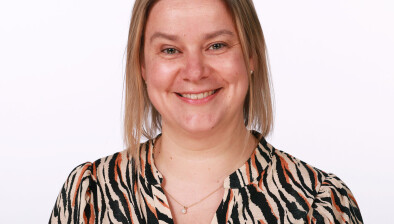RSM: Scottish hotels brace for national minimum wage headwind after a slow start to the year

Stuart McCallum
Scotland’s hotel sector saw a seasonal decline in demand and room rates during January, but the slow start to the year is set to be exacerbated further by the upcoming national minimum wage (NWM) increase in April, according to the RSM Hotels Tracker.
The data, which is compiled and produced by Hotstats and analysed by RSM, shows that despite the significant growth in room rates since the pandemic, total labour costs as a percentage of revenues increased from 30.7% in December 2023 to 45.2% in January 2024 in Scotland. Total labour costs also increased in comparison to January 2023 (43.6%).
Gross operating profits (GOP) dropped from 27.7% (December) to 2.4% (January) in Scotland. While GOP is largely in line with the same period in January 2023 (2.7%), it is lagging significantly behind pre-pandemic levels, at 3.6% in January 2020.
However, there were small signs of optimism for the sector as occupancy levels in January were 58%, up from 56.1% in January 2022. In addition, average daily rates were up from £85.26 in January 2022 to £89.39 in January 2024, with revenue per available room (REVPAR) increasing from £47.82 (January 2022) to £51.88 (January 2024).
Stuart McCallum, partner and head of consumer markets in Scotland at RSM UK, said: “Labour costs are up, and profits remain static, but they are still way behind pre-pandemic levels.
“As cost pressures eat into profitability, the forthcoming national minimum wage increase is yet another challenge the industry will need to navigate to remain viable.
“But, Scottish hoteliers will feel these cost pressures more acutely, as they have not received access to the same level of support as businesses south of the border have experienced, namely business rates relief.
“While demand in the sector typically dwindles at this time of the year, after the crescendo in the run up to Christmas, the industry is bracing for forthcoming headwinds, especially as last week’s Spring Budget omitted an end to the ‘tourist tax’, which would have helped the sector to grow, attract more international visitors to Scotland, and relieve cost pressures.”
He added: “However, there are some signs of cautious optimism for the Scottish hotel, as occupancy levels, average daily rates and REVPAR were all up in January 2024, compared to January 2022, showing that the sector is improving after several years of geopolitical and economic challenges.
“However, given the sharp jump in costs since the pandemic, gross operating profits are still not back to pre-pandemic levels, reinforcing the need for financial support measures to be extended to Scottish hoteliers.”
Thomas Pugh, economist at RSM UK: “The hotel sector, like many other parts of the economy faced a tough start to the year after slipping into recession in the second half of last year. But the hotel sector faces some specific challenges.
“While wage growth in the rest of the economy is slowing, the hotel sector is more heavily exposed to the upcoming increase in the national minimum wage, which will push up overall costs.
“In addition, weak economic conditions abroad, especially in Europe and China, will hamper demand from overseas. That points to challenging times for hoteliers in the first half of the year.”
Mr Pugh continued: “However, things look brighter in the second half of this year and into 2025. The inflation rate is expected to fall to roughly 2%, which would allow the Bank of England to start cutting interest rates. At the same time, real earnings growth will continue to rise and may hit its strongest growth rate in almost 20 years.
“There is also the distinct possibility of further tax cuts coming in March. Combine these three factors together and households should be feeling significantly better off later this year, allowing them to ramp up spending, including on travel and leisure.”






